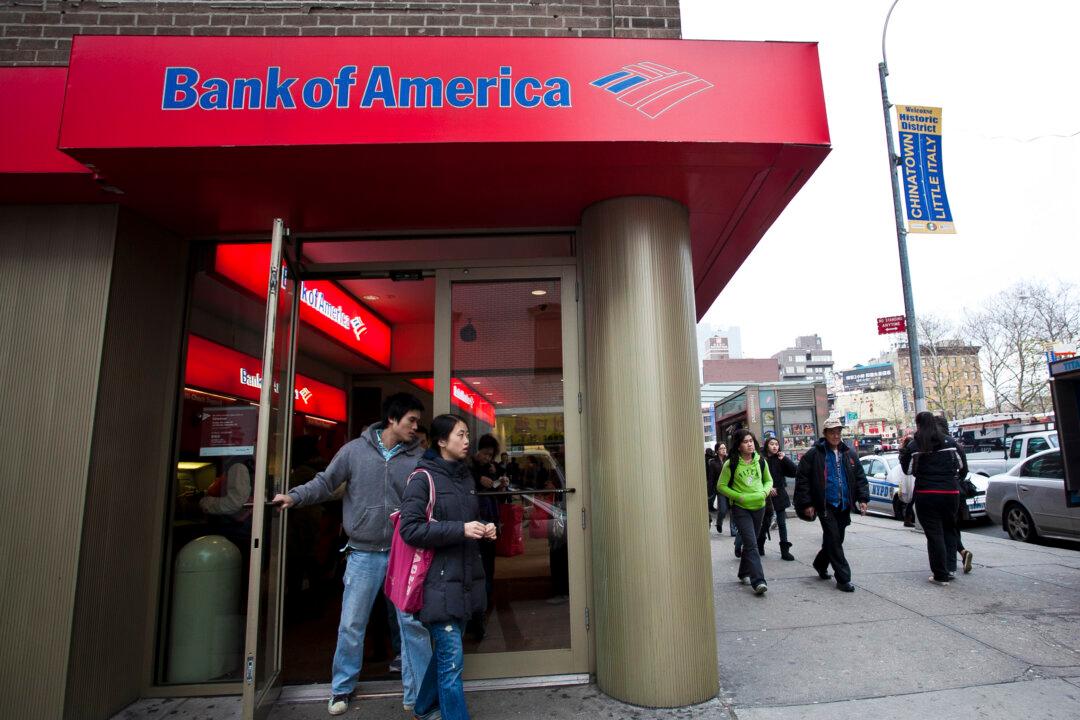Bank of America said in an earnings report Wednesday that it suffered a 45 percent decline in profits in the first quarter of the year, as the COVID-19 outbreak exploded in full force in the United States.
The bank posted a first-quarter profit of $4.01 billion on revenues of $22.8 billion, the company said in a statement (pdf), adding that it had set aside $3.6 billion in reserves in anticipation of a flood of loan defaults due to the pandemic.





